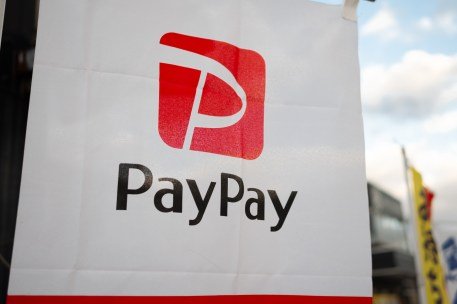Payments App PayPay’s Valuation could top $20 Billion in IPO

Japan’s PayPay’s valuation could reportedly exceed $20 billion as it prepares to go public.
The SoftBank-owned payments app is set for an initial public offering (IPO) in the U.S. in December, and investors think the company’s valuation could surpass 3 trillion yen, or $20 billion, Reuters reported Tuesday (Oct. 14), citing sources familiar with the matter.
The company’s baseline valuation of 2 trillion yen ($13 billion) is based on the expansion of PayPay’s Japanese business, the report said. One source told Reuters there is a range of opinions among investors on PayPay’s expansion prospects outside of Japan, which could support a greater valuation.
“The key focus going forward will be to what extent overseas expansion can be realistically pictured as a growth story, given the lack of business foundations not only in the U.S. but also in Asia,” said the source.
SoftBank had previously considered listings for PayPay in 2021 and again in 2023, PYMNTS reported last month.
According to the report, PayPay announced in September that users could now make payments abroad, starting with South Korea, which is a popular tourist destination for Japanese travelers.
Advertisement: Scroll to Continue
Reuters also notes that PayPay has played a part in pushing consumers in Japan to pivot away from their long-held preference for cash by offering rebates on mobile app payments. The cashless cashless payments ratio in Japan exceeded 40% last year, compared to upwards of 80% in South Korea and China, the report added.
The report points out that PayPay’s IPO plans comes as the market for listings in the U.S. enjoyed its busiest quarter in almost four years. Companies raised $24 billion through first-time share sales during the third quarter, Reuters added, citing data from Dealogic.
Elsewhere on the IPO front, PYMNTS wrote last week about the resurgence of listings in the FinTech sector following a number of quiet years.
“However, it’s not the same speculative surge that defined the last cycle,” that report added, noting that early offerings from companies like Klarna and Circle were for the most part met with optimism and double-digit increases from their offering prices.
Before this year, “I think most people were looking at FinTechs as firms that were trying to grow as quickly as possible to try to get as large a population” of customers in place as possible, Edward Best, co-chair of the capital markets practice at Willkie Farr & Gallagher, said in an interview with PYMNTS.
“They were chasing numbers, and many of them were unprofitable for a number of years.”
Best said this year’s listings and investors’ response to them demonstrate a fundamentally different environment.
“The overall market is certainly much more mature,” he said.






